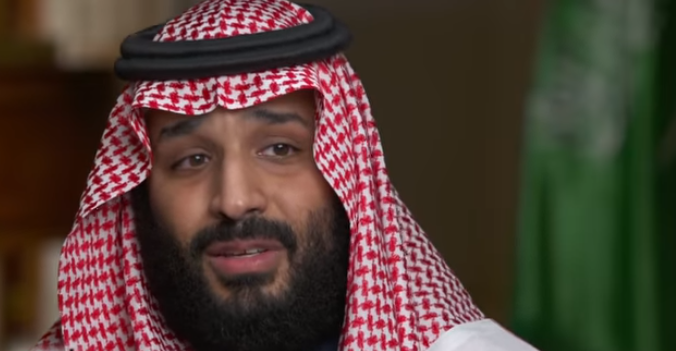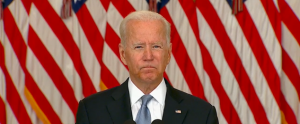
Oilprice.com (Nov 29, 2018): ‘Khashoggi’s Revenge: Is Saudi Arabia Becoming A Pariah State?’ By Nick Cunningham
The U.S. Senate took a dramatic step on Thursday, moving to block U.S. involvement in the Saudi war in Yemen and sending a powerful message to Riyadh that the U.S.-Saudi relationship is on the rocks.
An estimated 85,000 children may have died from starvation since Saudi Arabia began its campaign in Yemen in 2015, with millions more desperately hungry. The U.S. government has turned a blind eye to these atrocities for years. Indeed, the U.S. military has provided key logistical support to Saudi Arabia, which has magnified the humanitarian crisis in Yemen. But, for politicians in Washington, the relationship with Saudi Arabia, based on arms and oil, was a higher priority than the death of so many people.
The murder of Saudi journalist Jamal Khashoggi has upended that dynamic. It seems that nearly everybody in the world believes that crown prince Mohammed bin Salman was behind the assassination. Trump has tried to run interference for the crown prince in Washington, but this latest move by the Senate suggests it isn’t working.
More than a few Republican Senators voted to approve a bill on Thursday that would end American support for the Saudi-led war in Yemen. A handful of them were not happy that the White House seemed to block a CIA briefing for the Senators on the agency’s conclusions regarding MbS’ role in the Khashoggi murder.
Senator Lindsey Graham – normally a key ally of President Trump’s – was upset that the Senate was not allowed to hear from the CIA, and vowed to block any legislation until that changed. “I’m talking about any key vote. Anything that you need me for to get out of town, I ain’t doing it until we hear from the C.I.A.,” Graham told reporters.
He also said that if it comes to light that MbS was involved, as everyone expects, there would “be no business as usual with Saudi Arabia.”
A day earlier, Secretary of State Mike Pompeo wrote an op-ed in the Wall Street Journal, saying that it would be a “grave mistake” to degrade the U.S.-Saudi relationship.
The U.S.-Saudi relationship is now more damaged than at any moment in recent history. The fallout from the Senate vote adds even more pressure on Riyadh to assuage the White House. That could have ramifications for the oil market, especially with the OPEC+ meeting in Vienna just days away.
Saudi crown prince Mohammed bin Salman is in Buenos Aires this week for the G20 summit, and so is Donald Trump. The American president has tried to protect MbS in Washington, and the White House even threatened to veto the Senate bill, should it arrive at the president’s desk.
However, the bill, which passed with bipartisan support in the Senate, could also give Trump much more leverage in any discussions that he has with MbS in Argentina. Trump could point to the vote and warn MbS that he has very few friends left in Washington. He could essentially threaten to withdraw his support if the Saudis don’t do what he wants. And he has been very clear on what he wants: low oil prices.
This illustrates how badly MbS has miscalculated. Saudi Arabia may have to now suffer through a period of low oil prices – or lower than they prefer – because they have damaged, perhaps irreparably, their relationship with the U.S. government. MbS has sacrificed full control of Saudi Arabia’s oil policy.
For now, Riyadh is keeping its cards close to its chest. Saudi oil minister Khalid al-Falih said on Wednesday that Saudi Arabia will not cut on its own to stabilize the market. “We are going to … do whatever is necessary, but only if we act together as a group of 25,” al-Falih told reporters, referring to the OPEC+ coalition. “As Saudi Arabia we cannot do it alone, we will not do it alone.”
A collective decision by OPEC+ to cut output would help provide some political cover to Saudi Arabia. If a cut sparked outrage from Trump, maybe the blame for higher prices could be spread collectively across the entire group. Maybe. Although that is probably unlikely. Everyone, even Trump, understands that Saudi Arabia is the real muscle in the OPEC+ coalition. If oil prices rise significantly, Riyadh probably wouldn’t escape the ire of the White House.
Still, because Saudi Arabia desperately needs higher oil prices – an average $88 per barrel for its budget to breakeven – it also isn’t inevitable that Riyadh will bend to the will of Trump. Keeping production at a record high 11 million barrels per day would exacerbate the supply glut and likely push prices down further. Some see a middle-of-the-road “quiet cut” as the best option. Brent sank below $60 per barrel this week, and WTI fell below $50.
In short, the Khashoggi murder and Thursday’s vote in the U.S. Senate puts pressure on Saudi Arabia to dial back any action it had planned on taking in Vienna. That is bearish for oil prices.




